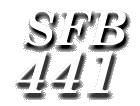|
|
International Conference
on
Linguistic Evidence.
Empirical, Theoretical, and Computational Perspectives
Tübingen, January 29 - 31, 2004
organized by the
Sonderforschungsbereich 441
"Linguistic Data Structures"
University of Tübingen Germany
Aims and Scope:
The renaissance of corpus linguistics and promising developments in
experimental linguistic techniques in recent years has led to a
remarkable revival of interest in issues of the empirical base of
linguistic theory in general, and the status of different kinds of
linguistic evidence in particular. Consensus is growing (a) that even
so-called primary data (from introspection as well as authentic
language production) are inherently complex performance data only
indirectly reflecting the subject of linguistic theory, (b) that for
an appropriate foundation of linguistic theories evidence from
different sources such as introspective data, corpus data, data from
(psycho-)linguistic experiments, historical and diachronic data,
typological data, neurolinguistic data and language learning data are
not only welcome but also (often) necessary. It is in particular by
contrasting evidence from different sources with respect to particular
research questions that we may gain a deeper understanding of the
status and quality of the individual types of linguistic evidence on
the one hand, and of their mutual relationship and respective weight
on the other.
It is the aim of this conference to bring together researchers from
different areas of linguistics to discuss their views on the above
issues and their use of different types of evidence in dealing with
linguistic research questions of different generality, and thereby
help establish a better understanding of the nature of linguistic
evidence. We therefore invite original contributions from all fields
of linguistics (including syntax, semantics, pragmatics, phonology,
morphology, computational linguistics, psycholinguistics,
neurolinguistics historical linguistics, typology) on any of the above
issues concerning linguistic evidence. Preference will be given to
papers addressing these issues in relation to specific linguistic
research problems.
|
